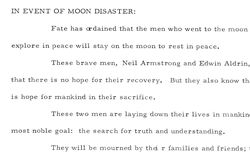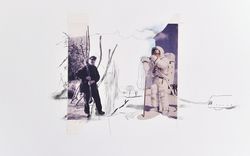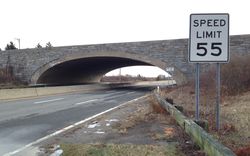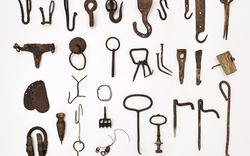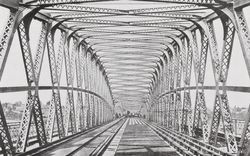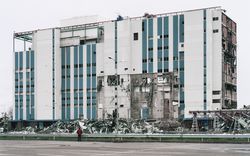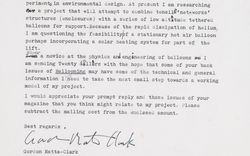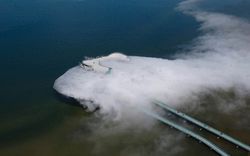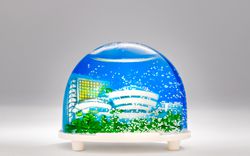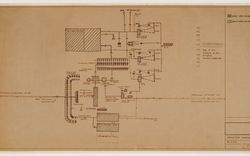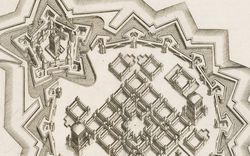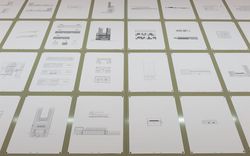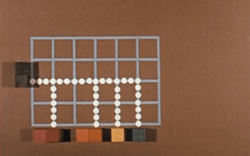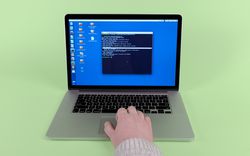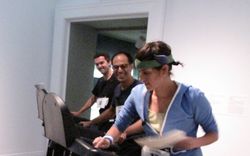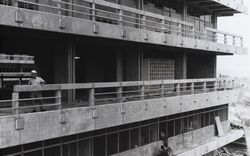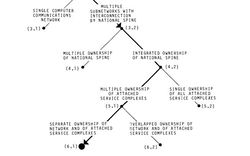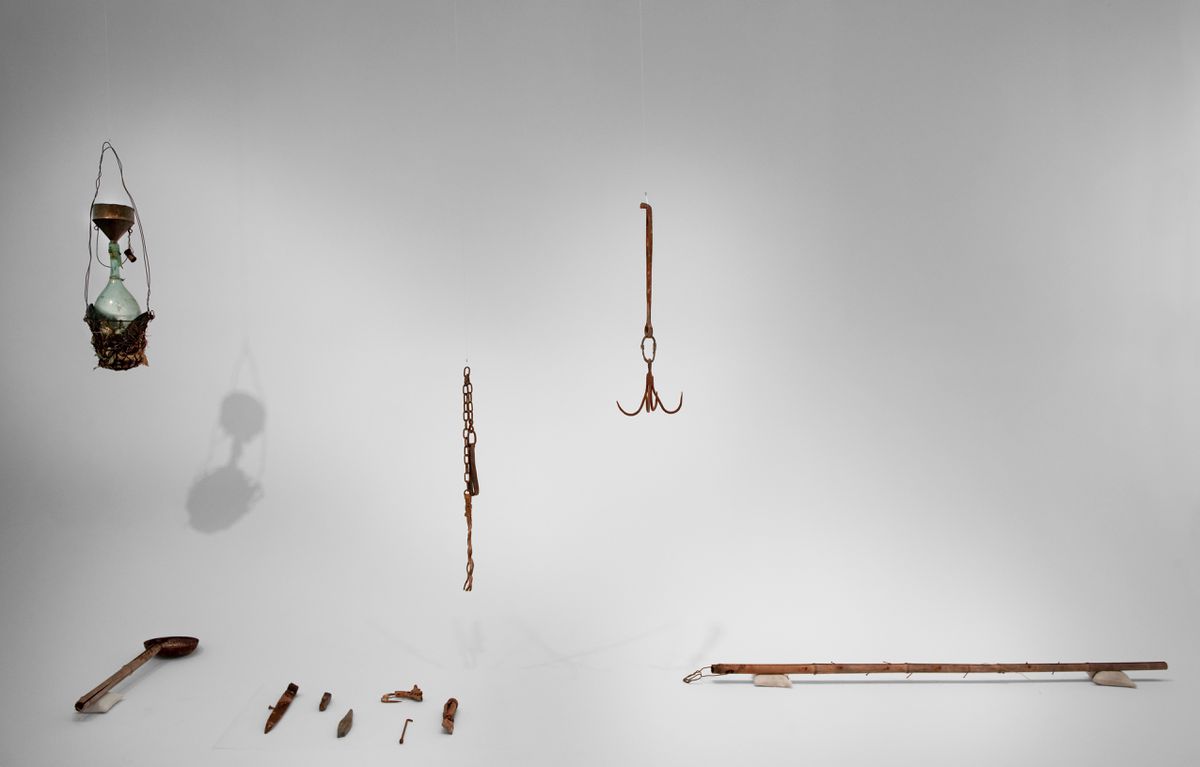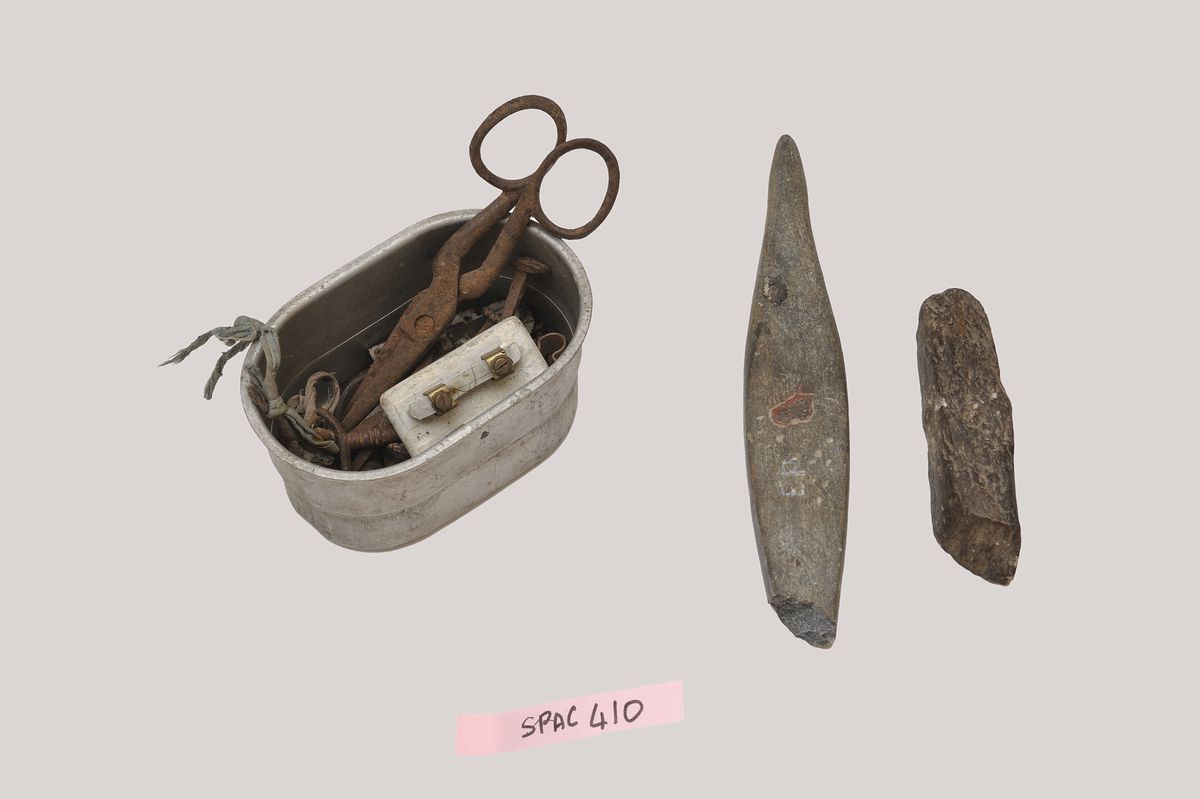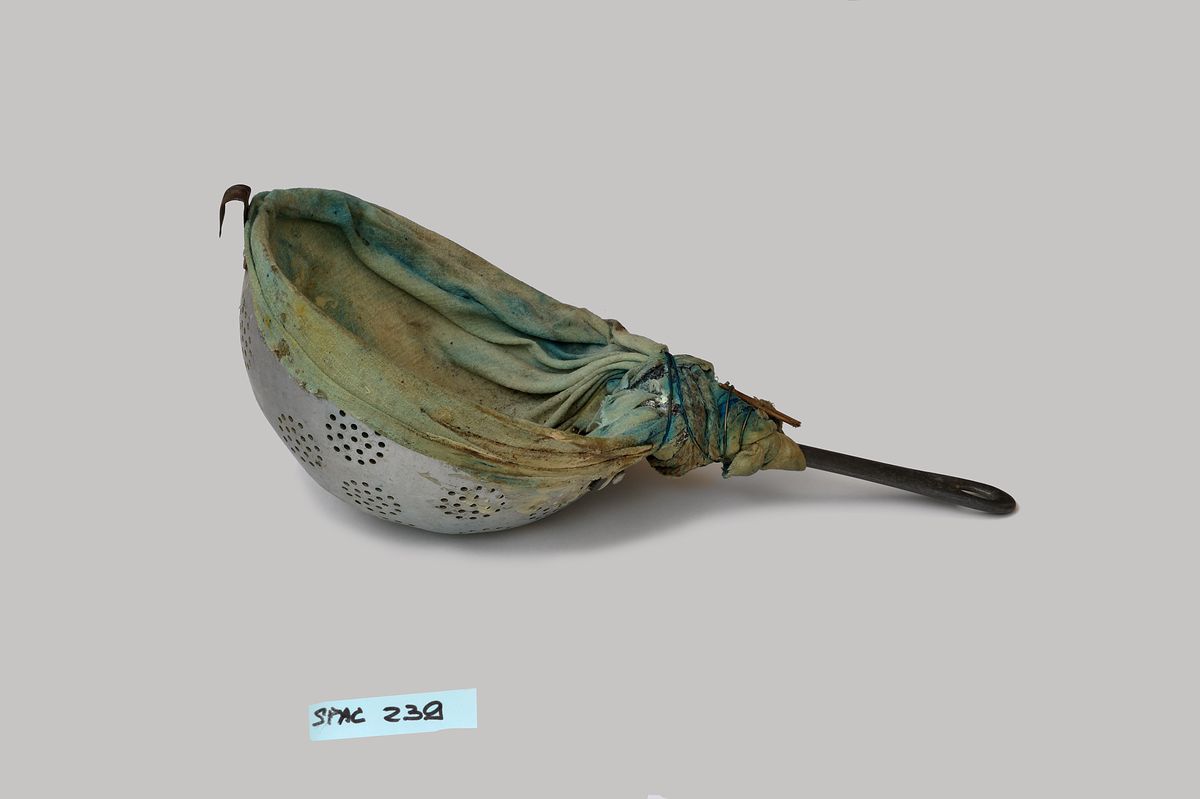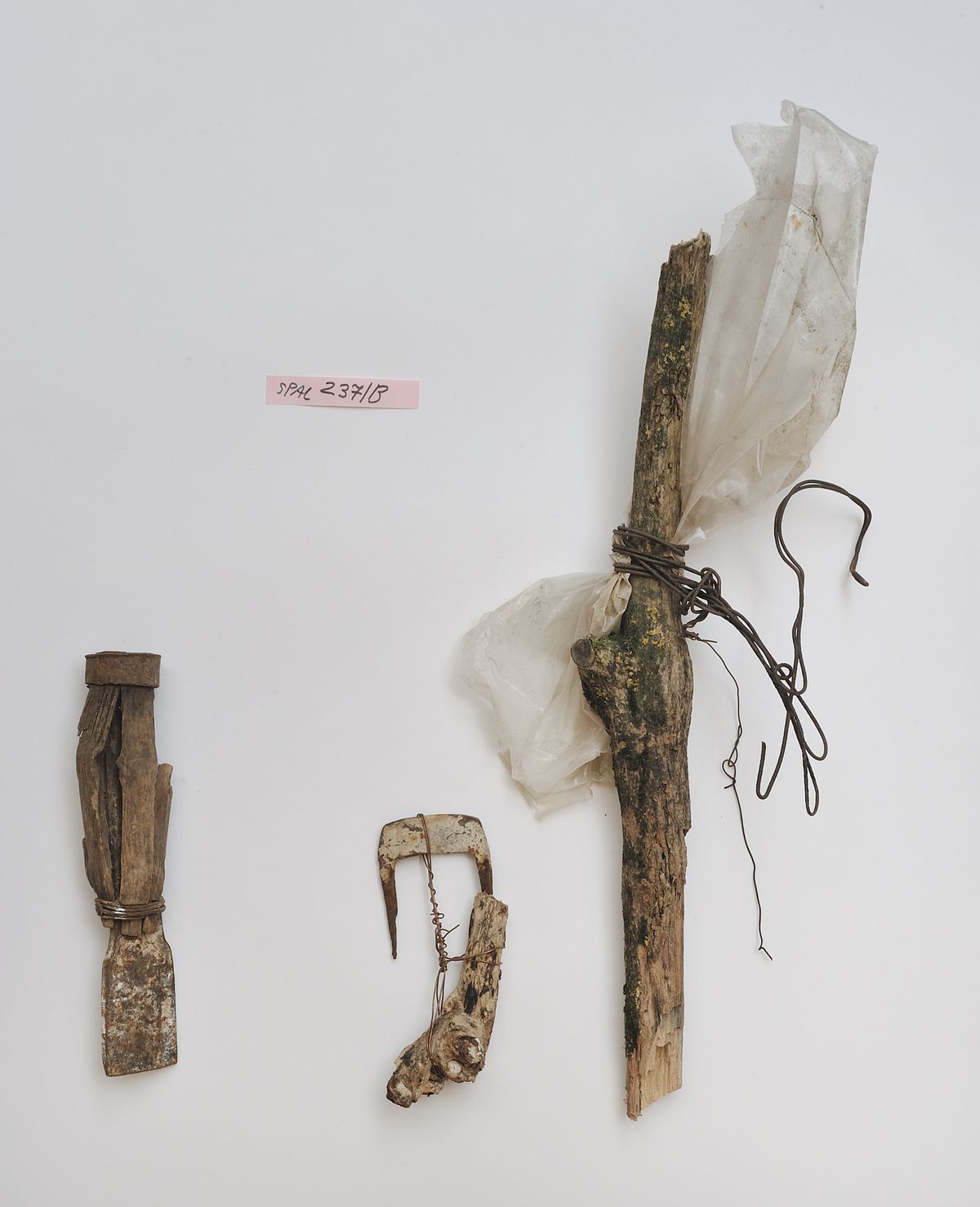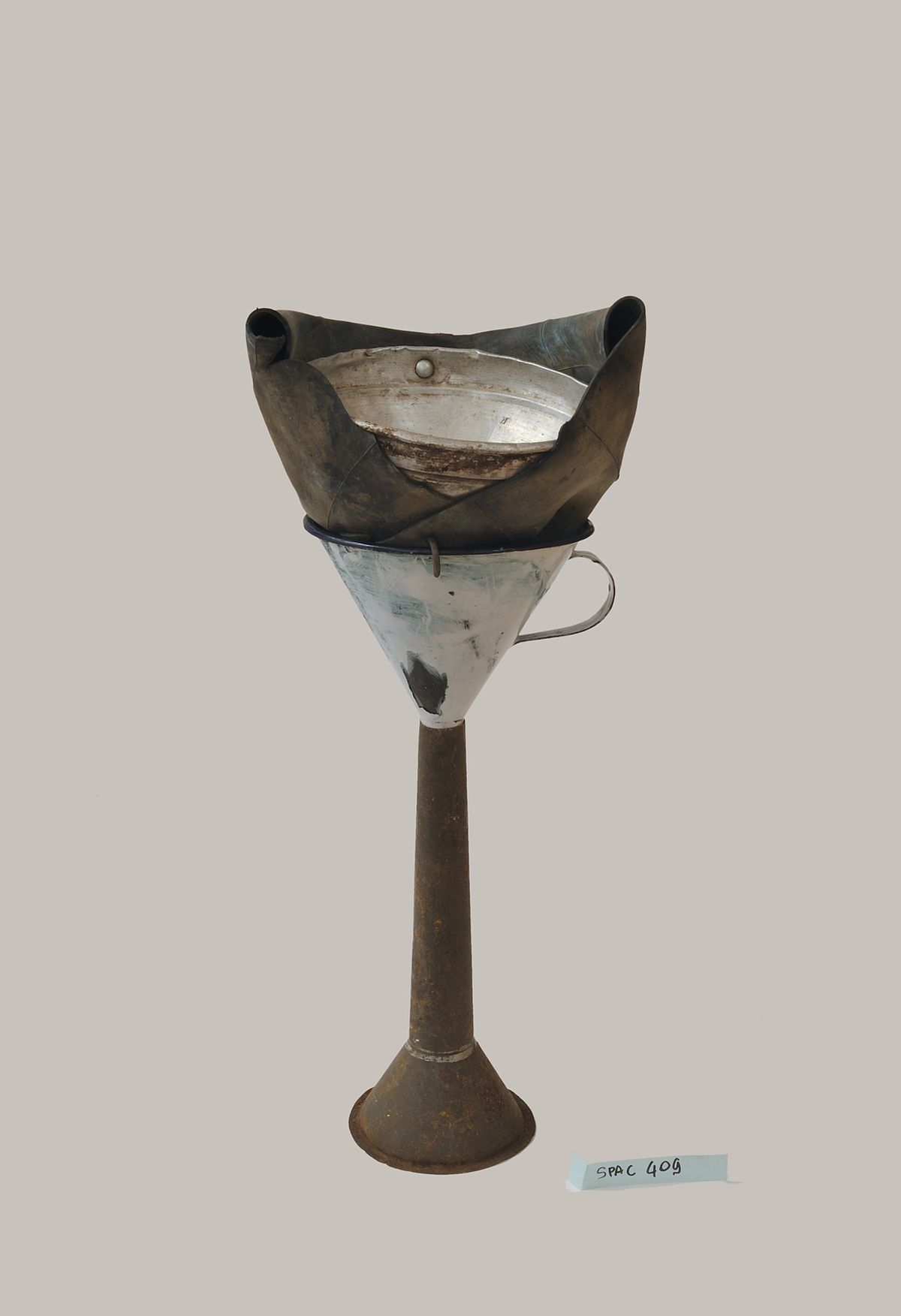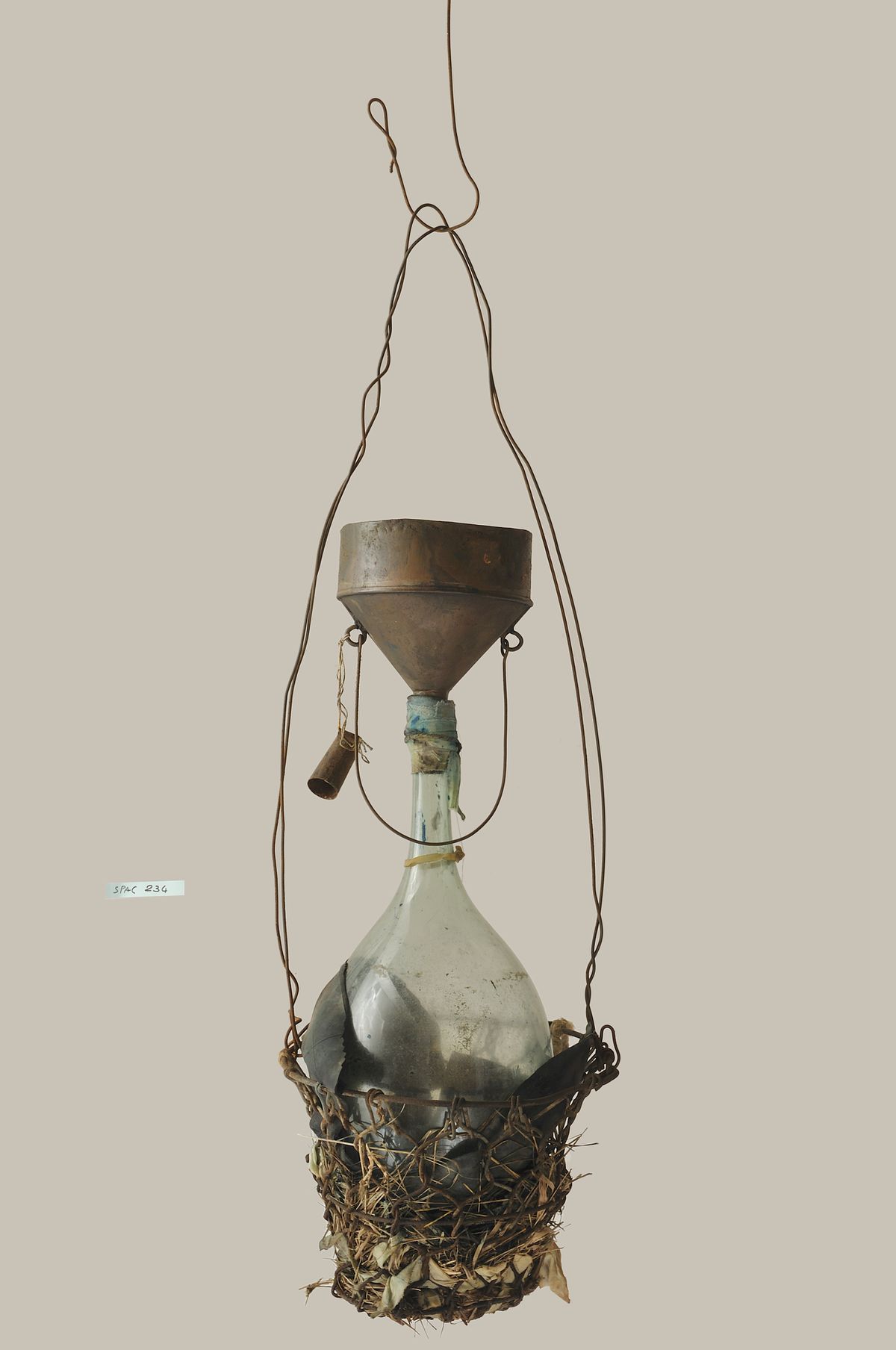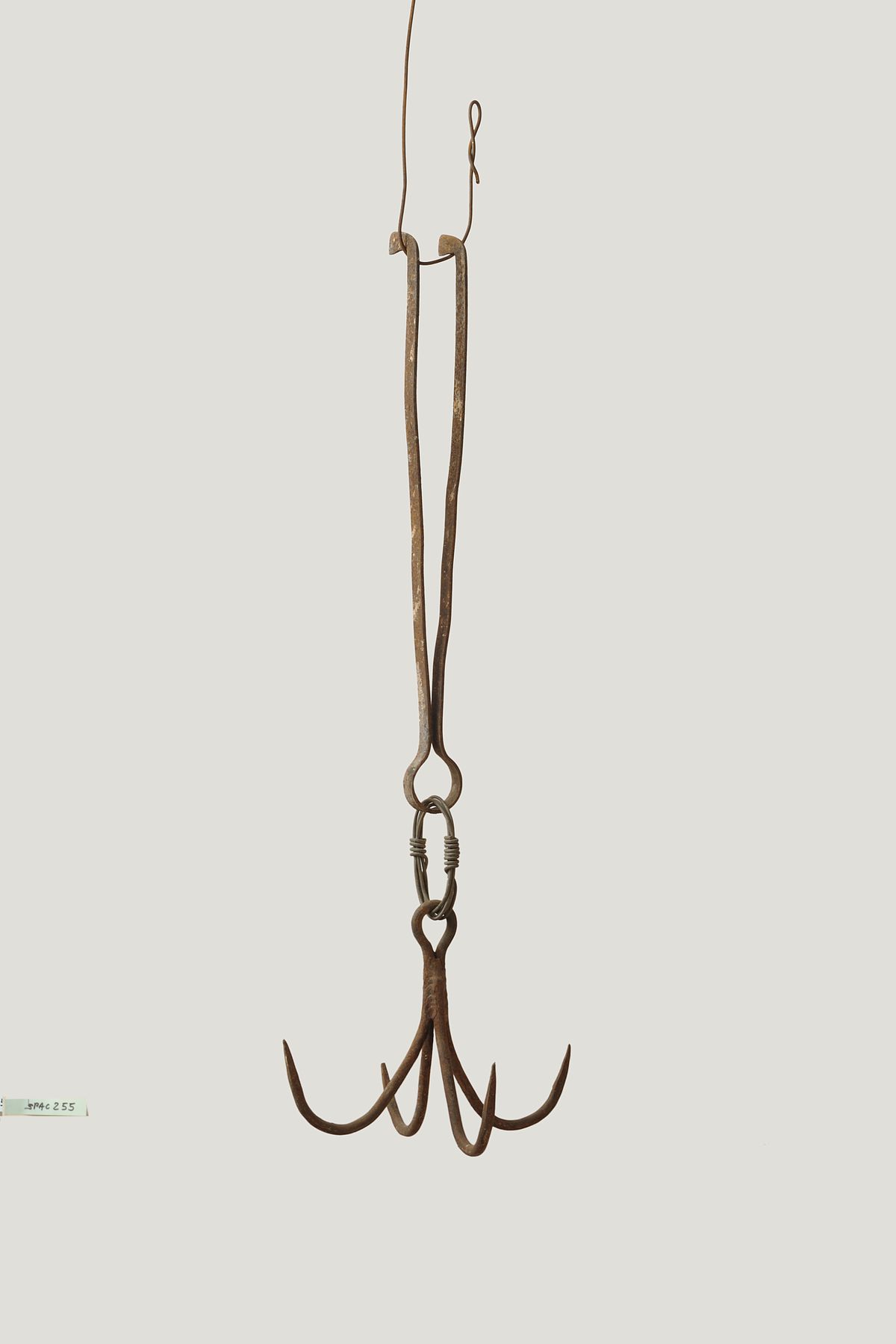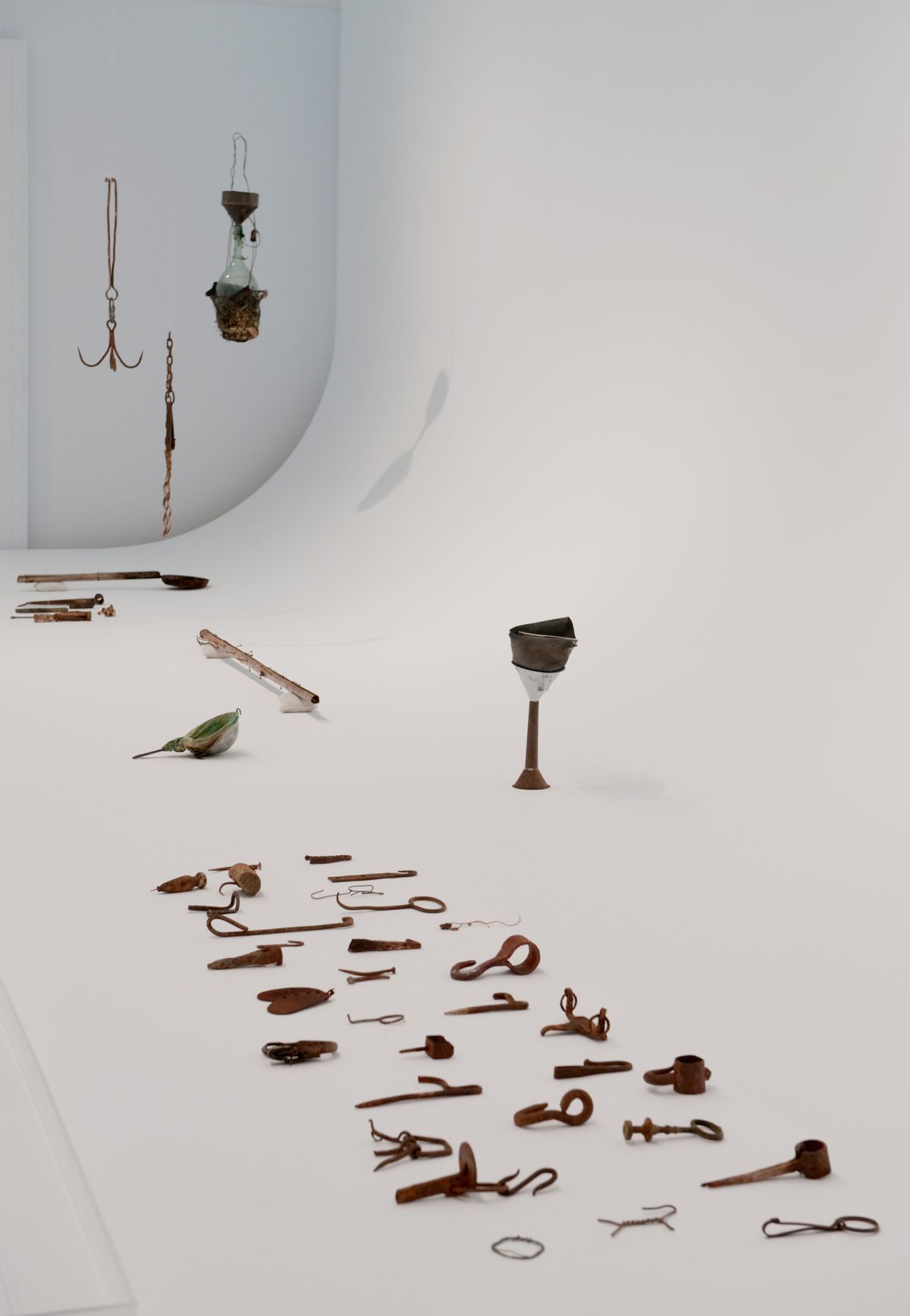We Are All Already Astronauts...
Text by Geoff Manaugh
“The greatest challenge for all is the return to earth, and we must do it together.”1
— Alessandro Poli
Alessandro Poli, formerly of Superstudio, postulates a fictional encounter between Buzz Aldrin, the U.S. astronaut, and an Italian farmer called Zeno from the village of Riparbella. Their meeting is brief; Poli represents it through a photomontage produced in 2008, entitled Zeno incontra Aldrin a Riparbella. We don’t see much in the image: just Zeno on the left, separated from the approaching astronaut by a series of pencilled lines used to hint at a largely familiar but disconcertingly alien landscape between them.
The context of their meeting, however, is extraordinary: it is to contrast the landscapes they’ve both seen, and to compare the tools and equipment they used in order to make those landscapes habitable. There is the Earth on one hand and the Moon on the other—but what makes these celestial bodies survivable by modern human beings is a suite of specially made pieces of equipment. Devices, mechanisms, instruments, tools: these handheld objects work to transform what would otherwise be hostile—or, at least, uncomfortable—to human life. Indeed, it is through tools such as these, and the architectural environments to which they are connected, that whole planets become available to anthropological experience in ways they simply could not have been before. Even the most basic agriculture, we could say, is a form of applied terraforming.
For Zeno, this translates into a broad range of vernacular tools, really no more complex than gardening implements, that Poli has laid out for visitors to see. These include hooks, augers, and assorted harvesting equipment, each appropriately labeled. But, of course, there is also Zeno’s personal farm shed: his own space capsule. For Aldrin, meanwhile, this means an esoteric but no less vernacular suite of high-tech devices passed on to him by NASA, in order that space—and the lunar surface—could be survived.
But what I find most extraordinary here is the idea that the anthropological experience of any planet, including the Earth, is by necessity mediated by a series of tools—an assemblage of Heideggerian equipment that cultivates, prunes, transforms, and domesticates an otherwise inhuman environment.
The upshot, of course—even if I hate to put it this bluntly—is that we are all already astronauts, using the tools available to us to seek or construct new niches of habitation on a planet that we might not otherwise survive.
Seen this way, Poli’s loosely implied vision of farmers in rural Italy someday using repurposed lunar tools in the cultivation of basic crops seems neither science-fictional nor far-fetched. It is all just equipment for living.
-
Alessandro Poli, “Zeno and Aldrin Meet in Riparbella, Tuscany, in the Summer of 2008,” in Other Space Odysseys: Greg Lynn, Michael Maltzan, Alessandro Poli (Montreal: Canadian Centre for Architecture, and Zurich: Lars Müller Publishers, 2010), 93. ↩
Geoff Manaugh visited the exhibition Other Space Odysseys while at the CCA as part of the Visiting Scholar program in 2010.
